All Articles
Interview With A Coho Salmon
September 2009 by Scott Harn
We’ve obtained the rights to publish this exclusive interview conducted on the Klamath River between David, an environmental activist, and a Coho salmon.David: “What do you think about these suction gold dredgers?”
Coho: “Suction gold dredgers?”
David: “They’re the miners who run those noisy machines, vacuuming the river bottoms in search of gold while destroying the rivers.”
Coho: “They make noise? Hmm, I hadn’t noticed. They’re never running when I come through. Does it bother you? It seems like you’re bothered by it. Have you tried going to a different area so you aren’t annoyed by the noise? Do you have a problem with sharing the river? Is that the issue? You know, I hear there’s counseling available for those humans who have problems with sharing.”
David: “I’m asking the questions here.”
Coho: “Sorry. I spend much of my life out in the ocean. I’m not really around when the dredges are operating, so the noise doesn’t bother me.”
David: “Don’t you swim up the rivers during spawning season and lay your eggs?”
Coho: “Yeah, but I’ve heard there are some rules or something the dredgers follow so they aren’t in the water during that time.”
David: “Well, what about these holes they make when they move the gravel and boulders? That must make you pretty angry!”
Coho: “Suction dredgers create the holes? I thought you guys did that, because those are a huge help. Some of the water is too warm for us. The deeper water in the hole is cooler, and it’s a great place to get out of the faster currents and rest. Holes are awesome.”
David: “Never mind. What about those gravel areas, where the compacted gravels are broken up and redistributed?”
Coho: “I’ve been meaning to thank you for that. We lose a few of our offspring if high water comes, but we still prefer those areas for spawning.”
David: “Ummm, let’s move on. Let’s talk about mercury. Mercury is in the gravels and these dredgers are stirring it up. Doesn’t that bother you?”
Coho: “Yeah that shiny, liquid metal is nasty stuff. It messes with my nervous system.”
David: “Now we’re making progress. So tell me how the dredgers are causing you severe harm by stirring up the mercury?”
Coho: “Yeah, I think you’re confused. I’m pretty sure when they vacuum the river bottom to get the gold they also capture almost all of the mercury. The tiny amount they don’t get ends up making its way back through the gravels and settles in the cracks of the bedrock. I heard that mercury is bad for humans, too! I’m sure you guys know this. Haven’t you read the studies?”
David: “No. I mean, yes. Well, we’ve produced our own studies.”
Coho: “Are these studies biased? Are the results predetermined?”
David: “Let’s get back to the questions. How about all that sediment they stir up? That must be a pain.”
Coho: “Have you ever been to a river during the winter run off? That’s some serious cloudy water, like thousands of times worse than what comes off a dredge. The dredge plumes are a joke in comparison. Next question.”
David: “Okay. Let’s talk about trash. You know, garbage. Doesn’t that stuff mess up your habitat?”
Coho: “Sure does. Those dredgers leave tons of lead with these stringy things attached.”
David: “Ummm, the lead is actually left by fishermen.”
Coho: “Oh. So, what is it you guys actually do to help us?”
David: “Well, we collect money, which we use to conduct studies, educate the public, and provide legislators with funds for their elections so they will support our position. We also file lawsuits against the state to stop any activity that might damage your environment.”
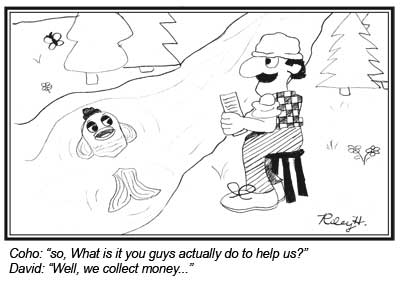 Coho: “That’s cool. So you constantly harass the fishermen while supporting the dredgers? And the Indians too, of course—they use gill nets.”
Coho: “That’s cool. So you constantly harass the fishermen while supporting the dredgers? And the Indians too, of course—they use gill nets.”David: “Ummm, no. We team up with fishermen and Indians and sue the dredgers.”
Coho: “I am soooo confused.”
David: “The fishermen, the Indian tribes, and other groups who want exclusive use of the rivers are the ones who give us money, so we’re all on the same team.”
Coho: “So, you team up with those who kill us to stop those who help us?? Even a fish can recognize a problem with your logic!”
David: “What would you recommend?”
Coho: “Why don’t you guys start suction dredging? That would be a huge help to us. You could totally clean up our habitat, get rid of that nasty mercury and those lead things, make some nice spawning beds and some of those awesome holes. You’d get some gold to help your family and the economy. I hear the economy is pretty messed up right now.”
David: “You want us to start dredging?”
Coho: “It would create a win-win situation for fish and humans! Oh, I forgot—the noise bothers you and you don’t like to share. I guess it’s much easier to mine the humans for contributions than it is to mine for gold. And it seems to me you should be suing the fishermen instead of the dredgers.”
David: “Just between you and me, the fishermen are the next target on our list, but we’re not done using them yet.”
Commercial Placer Mining: Alaska Style
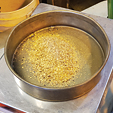 There are currently about 170 commercial-scale placer operations in Alaska. Most of these are small operations with just a few people working; they are often family affairs that operate seasonally only during favorable weather.
There are currently about 170 commercial-scale placer operations in Alaska. Most of these are small operations with just a few people working; they are often family affairs that operate seasonally only during favorable weather.
Aussie Gold—A Look at Tasmania
Tasmania (The Apple Isle) is a large, heart-shaped island off the southeast coast of Australia. Open farmlands and forests are found on the north and east coasts tending to more rugged terrain on the west and south coasts. Good roads service the entire island except the southwest corner.
Ask the Experts
• Sweep speed and sensitivity settings for a GPX-4500
Washington Gold Miners Receive Ecology Award
Representatives from Washington State’s independent, small-scale gold mining community recently accepted an award and a message of gratitude from the leader of the State’s Department of Ecology.
Melman on Gold & Silver
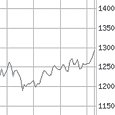 ...it is beginning to appear that we are recently witnessing a gradual buildup of background information that could lend strength to the arguments for ultimately higher gold and silver prices.
...it is beginning to appear that we are recently witnessing a gradual buildup of background information that could lend strength to the arguments for ultimately higher gold and silver prices.
Silverton's Gold
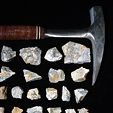 Within this area, about two million ounces of gold and fifty million ounces of silver have been mined. Faults, dikes, veins and fissures that carry the ore form a concentric radial pattern—like spokes on a wagon wheel—around the caldera core.
Within this area, about two million ounces of gold and fifty million ounces of silver have been mined. Faults, dikes, veins and fissures that carry the ore form a concentric radial pattern—like spokes on a wagon wheel—around the caldera core.
Placer Gold in Washington
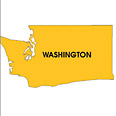 The state of Washington is not especially known for placer gold, yet significant amounts have been recovered in a few districts. These deposits are usually downstream from lode mining areas, some of which are in British Columbia.
The state of Washington is not especially known for placer gold, yet significant amounts have been recovered in a few districts. These deposits are usually downstream from lode mining areas, some of which are in British Columbia.
Subscription Required:
The Bawl Mill
• Legislative and Regulatory Update
• Drive Under Way to Restore the Rights of Suction Dredgers
• Abbey Confirmed As BLM Director
• Gifts of Gold for University of Zimbabwe
• Flood Stage—The Key to Reading a River
• Noted Geologist Murdered in Kenya
• South Yuba River Recreational Area
• Rio Employees Face Trade Secrets, Bribery Charges
• Pocket Mining Potential in Nevada's East Humboldt Range
• Company Finds Gold in Wyoming’s Rattlesnake Hills
• The Economic Impact of Suction Dredging in California
• Bucket Line Dredges
• Melman on Gold & Silver
• Mining Stock Quotes and Mineral & Metal Prices
Free:








